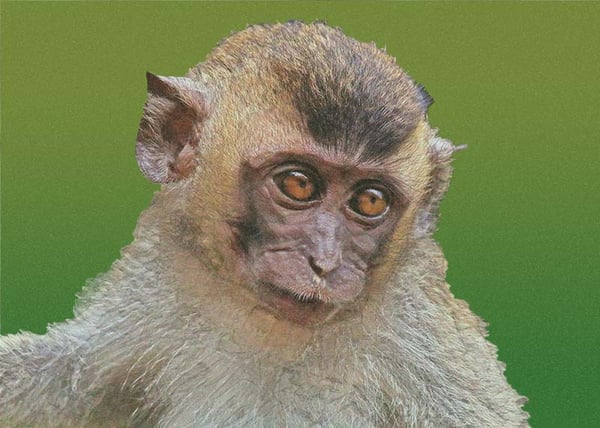Big pharma and its murky monkey business
If you return as an animal in your next life, do not come back as a long-tailed macaque. These monkeys have the misfortune of sharing 93% of their DNA with humans, making them a perfect research model for medical trials, for everything from weight-loss drugs to vaccines. The sudden demand for vaccine testing subjects during the COVID-19 pandemic and widespread habitat loss have led the monkeys to be declared endangered. This has, however, not stopped biomedical companies from using these intelligent, social creatures for their experiments.
Instead, the shortage has increased so-called “monkey laundering” in countries such as Vietnam and Cambodia, where smugglers capture these wild animals and obtain false papers stating that they were bred in captivity for two generations, as required by EU law on animal testing. One European company possibly involved in this shady business is Novo Nordisk, the Danish pharmaceutical giant behind the weight-loss drugs Wegovy and Ozempic, according to a recent investigation from the Danish media Jyllands-Posten. The company denies the allegations, yet refuses to say where it gets its monkeys from. Novo also says it aims to reduce animal testing, yet the number of used animals has only gone up since 2019.

Medical trials involving primates have played an essential role in scientific history, but the necessity and ethics of using these highly intelligent animals have become increasingly contested, especially as science and medicine move rapidly forward. Alternatives to animal testing exist – however, a recent report concluded that these options cannot yet be deemed as viable replacements for testing with primates. At the same time, some experts warn that using monkeys in clinical trials increases the risk of a zoonotic disease developing into a pandemic, while others warn that monkeys’ unknown diseases can make them less reliable as test subjects.
Snatching wild monkeys is lucrative for criminal networks, with the global wildlife trade being the largest illegal industry after weapons and drugs. This supports other illegal activities such as corruption, undermining democratic principles, and exploiting the local economy.
